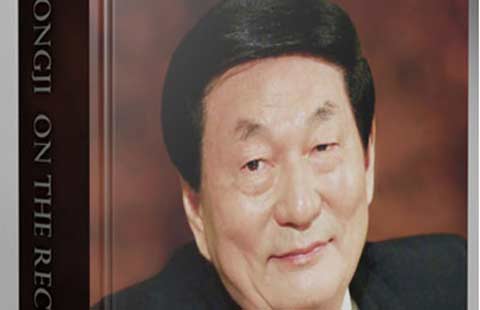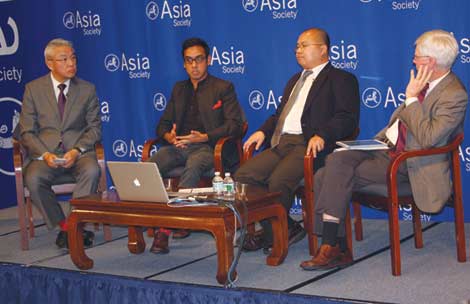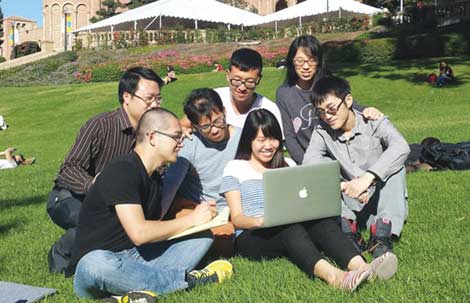America's Global Surveillance Record
Updated: 2014-05-26 15:30
(China Academy of Cyber Space)
|
||||||||
IV. America's global surveillance program hit by worldwide criticism
After the PRISM program was revealed, the United States encountered worldwide criticism, including from its allies. German Chancellor Angela Merkel said, "We need trust among allies and partners. Such trust now has to be built anew. "
The fact that the NSA spied on Brazilian president Dilma Rousseff, and hacked the email of Mexican president Enrique Peña Nieto before he took office, triggered outrage in those countries. "The Brazilian government is determined to get clarification from the US government... and require specific action to remove the possibility of espionage once and for all," Rousseff said. Not receiving a satisfactory reply, she postponed a state visit to Washington.
Rousseff also condemned US hacking of the computer networks of the Brazilian oil company Petrobras, noting that "it will be evident that the motive for the US spying attempts is not security or the war on terrorism, but strategic economic interests... Clearly, Petrobras is not a threat to the security of any country."
In order to avoid US network surveillance, Brazil is planning to build an undersea fiber optic cable to Europe. The Brazilian government has ordered its postal service and federal data processing center to develop a new email system to guard against espionage and safeguard its economic and political security.
The Global Internet Governance Conference held in Sao Paulo, Brazil, in April 2014 focused on building a new international Internet governance order. The United States, which had in the past often bragged about Internet freedom, tried to keep a low profile, but nevertheless came in for severe criticism. During the conference, Brazilian President Rousseff chided the United States without mentioning it by name. "[In Internet governance] multilateral participation is very important. All participating governments should be treated equally and all alike without discrimination. It is not one country that has more power of discourse than any other countries," she said, clearly referring to the US government's control over Internet regulatory agencies, and its monitoring of other countries' networks. Russia sharply denounced the United States, saying that the U.S had “arrogated to itself" the Internet Corporation for Assigned Names and Numbers (ICANN). "This situation makes the international society very worried," the Russian representative said.
After news of US surveillance of Malaysia was exposed, Malaysia's foreign ministry sent a written protest to the US ambassador to Malaysia. Malaysian Prime Minister Najib Razak said that the surveillance infringed upon national sovereignty and that the Malaysian government firmly opposed all forms of US monitoring activities in Malaysia.
Nine major international civil liberties groups have issued joint declaration that the US federal government's secretive scrutiny program, PRISM, is a breach of international conventions on human rights. The joint declaration said, "Such vast and pervasive state surveillance violates two of the most fundamental human rights: the right to privacy and to freedom of expression."
In the United States, criticism and protests arise one after another. An American Civil Liberties Union official blasted the NSA, saying the spy agency had gone far beyond judicial authorization in monitoring private communications and "virtually every aspect of Americans' lives.''
American civil rights organizations have issued a statement to protest against the massive collection of mobile phone data launched by the NSA, and have expressed concern about so many Americans being tracked by the government. Chris Soghoian, principal technologist at the American Civil Liberties Union, said, "The only way to hide your location is to disconnect from our modern communication system and live in a cave."
In dealing with US global surveillance, the 68th Session of the UN General Assembly passed the resolution "Privacy in the Digital Age" which stressed that illegal or arbitrary surveillance, interception of communications, and illegal collection of personal data violates the rights to privacy and freedom of expression. Some countries spoke before the resolution was passed, denouncing the United States for not only violating the right to privacy and other basic human rights, but also for having violated the principles of the Charter of the United Nations on mutual respect for sovereignty and territorial integrity and non-interference in each other's internal affairs.
After NSA surveillance of Huawei was exposed, William Plummer, a Huawei executive, said that the company did not know it was an NSA target. "The irony is that exactly what they are doing to us is what they have always charged that the Chinese are doing through us," he said.
"Washington is losing its morals," the German magazine Focus quoted an expert on foreign policy as saying. "Over the years the United States has exerted pressure on China in the name of Chinese spies and hacker attacks. In fact, the United States itself is the eavesdropper." German television news said that the United States had monitored "the whole of China" almost in all domains. "After all, this is because the United States fears China will overtake it to become the world's superpower."
Snowden said the US government had "declared that [surveillance] won't target civilian facilities." The purpose of exposing the PRISM program was to reveal the US government's hypocrisy.
- Xinjiang publishes anti-terror brochures
- Security pact sealed with Afghanistan
- President Xi encourages international cultural exchanges
- Premier Li: China willing to help Afghan infrastructure
- Chinese FM: China, Asia-Pacific become community of shared destiny
- Foreign minister remarks on possibility of China-Japan summit
Most Viewed
Editor's Picks

|

|

|

|

|

|
Today's Top News
VW defends safety of recalled New Sagitar
Former premier makes Hurun philanthropists list
Xinjiang publishes anti-terror brochures
SOHO endows $10m to Yale
Cook and Ma talk about partnership
Language a barrier to healthcare for Asian Americans
China businesses need innovation: VC
Security pact sealed with Afghanistan
US Weekly

|

|















